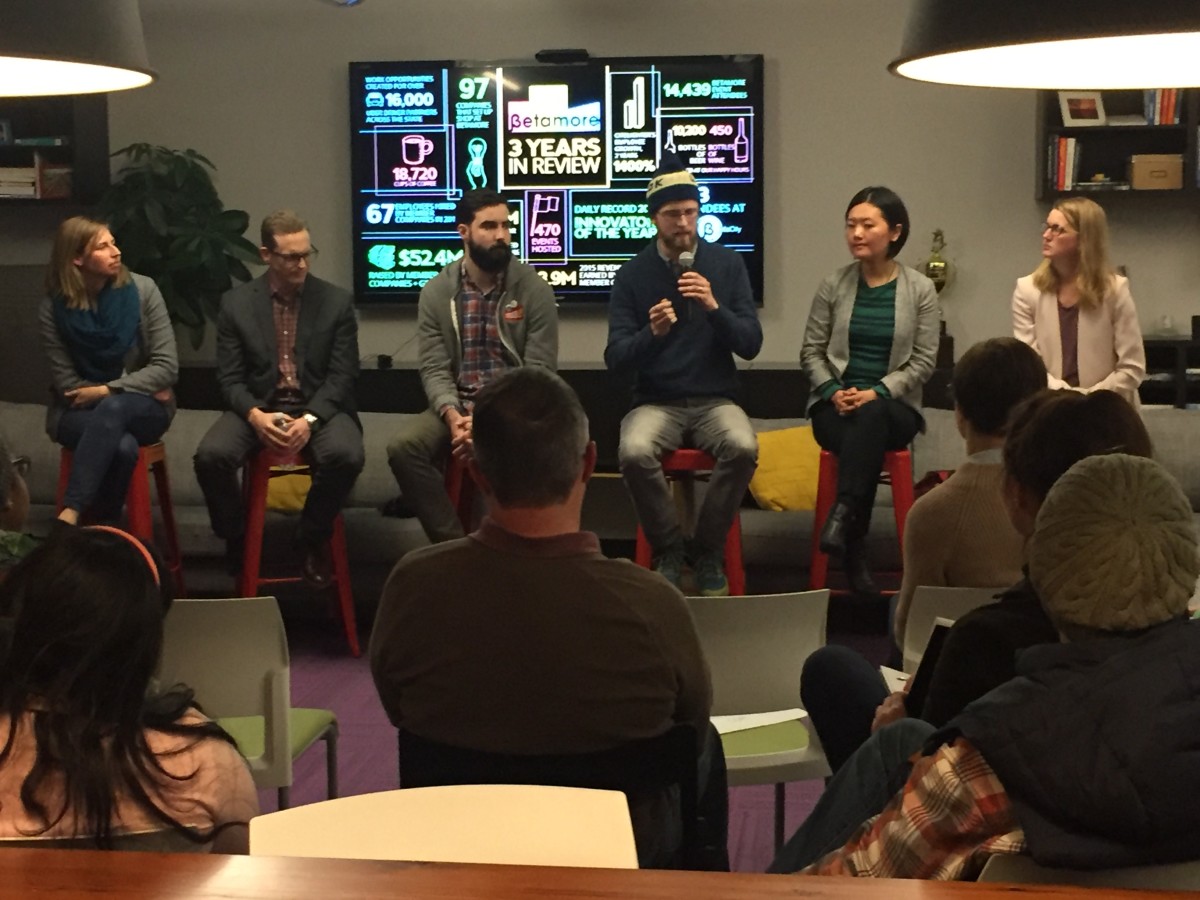Ultimately, user experience design helps businesses stay customer-focused, said Cathy Lu, who leads a team of UX/UI designers at AOL Platforms.
But in building a business or working in a large organization, UX is in the mix with other interests and priorities.
On Tuesday night at Betamore, Lu and other UXers from Under Armour, OrderUp, Johns Hopkins Medicine, Allovue and Common Curriculum explored that tension — and talked more broadly about where UX fits within their various organizations.
According to the panelists, here are three ways to look at the role of UX in organizations:
1. Be a voice for the user
- Aaron Watkins, who leads the Internet Strategy and Web Services team at Johns Hopkins Medicine, said one asset for UXers working in a large organization derives from its ultimate goal: To make a product easy to navigate and use. Rather than strictly functionality or usability, he said, look at UX as a voice for the people who use the product. In dealing with other teams throughout the organization, taking that stance is a good way to encourage people to pay attention to UX, and it could affect the culture of the entire organization to become more customer-thinking.
2. Be a coordinator
- In a 21st-century workforce where coordinators are highly valued, the UX team is positioned to be the ultimate workers across departments, said AOL’s Lu. They work with internal teams of designers, developers and leaders, interface with customers and beyond, she said. In practice, Under Armour Global User Experience Manager Amy Rubino says her team has made it a point to go to meetings across departments to gather as much information as possible. It’s better to turn down the invite to the meeting than to not be invited in the first place, she said.
3. Value feedback
- UX can be part of a larger process to get feedback about products. At OrderUp, UX/UI team leader Alan Clark said talking face-to-face with drivers, restaurant owners and customers who use the company’s apps provides some of the best feedback on the product’s usability. At Common Curriculum, cofounder Scott Messinger offered one question that always plays into the edtech startup’s thinking: “What’s the right thing to do to get us the right feedback?”







